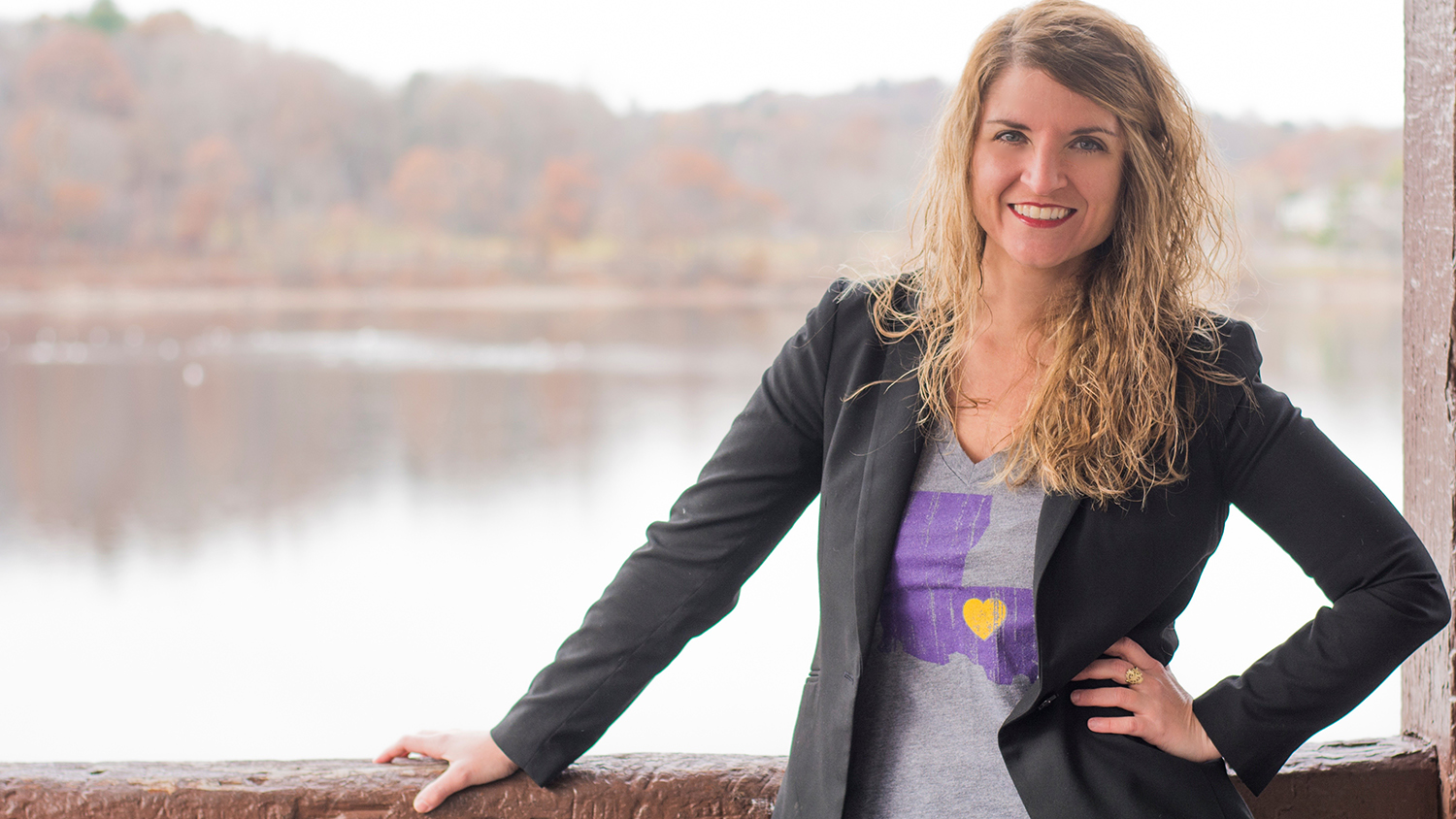Higher Education Alumna Creates White Anti-Racist Educators Reading Group in Effort to Generate Action Toward More Equitable Learning and Working Environments

Higher education alumna Sonja Ardoin ‘13PHD, who serves as an assistant professor in the student affairs administration program at Appalachian State University, has joined forces with a few of her professional colleagues to establish the White Anti-Racist Educators Reading Group.
This summer book club is a collaboration between Ardoin, Genia Bettencourt, Ph.D., from the University of Massachusetts-Amherst and Z Nicolazzo, Ph.D., from the University of Arizona, in an effort to generate action toward more equitable learning and working environments. The group is made up of mostly White educators, primarily faculty and administrators in higher education and student affairs, who have committed to reading anti-racist books together.
[spotlight-box label=”” img=”” heading=”Sonja Ardoin’s Resources for Educators” cta=”” url=””]
For other educators who are interested in learning more about being anti-racist, here are some resources that Ardoin would recommend:
- Local and university libraries: many are cultivating learning resource lists for both children and adults of materials from their holdings
- Online content: documentaries, webinars, TED talks, Netflix’s curated Black Lives Matter collection, etc
- Conversations with people: partners, families, friends, colleagues and neighbors
[/spotlight-box]
“Our connection and collaboration was rooted in witnessing, over the past months and years, how anti-Black racism, settler colonialism and White supremacy continue to proliferate across the country and within higher education,” Ardoin said.
Ardoin and her colleagues have chosen to center the group around one question: how do we as White educators do the work of moving anti-racism into action through our various roles and spheres of influence within higher education?
To help answer that question, the group will be reading four texts: How We Get Free edited by Keeanga-Yamahtta Taylor, So You Want to Talk About Race by Ijeoma Oluo, How to Be an Antiracist by Ibram X. Kendi and We Want to Do More Than Survive by Bettina Love.
It’s important, she says, for White people to engage in ‘caucus’ space to name and unlearn White supremacy, which she learned as a participant in the Social Justice Training Institute in 2010.
“With COVID-19 disproportionally harming Black, Brown and Indigienous populations, the increased militarization of the police, who continue to target and kill Black people, and cost-cutting measures many institutions of education are implementing, which already have deleterious effects on marginalized populations, one thing was clear to us — now is a time for action in as many ways as we possibly can,” Ardoin said.
[spotlight-box label=”” img=”” heading=”Ardoin’s Book Recommendations That Have Impacted Her Life” cta=”” align=”left” url=”]
Here is a list of books centered around race and education that have had the greatest impact on Ardoin as a person and an educator.
- Pedagogy of the Oppressed by Paulo Freire
- The Mis-Education of the Negro by Carter G. Woodson
- Why Are All the Black Kids Sitting Together in the Cafeteria by Beverly Tatum
- Anything by bell hooks, Ph.D., and Cornel West, Ph.D.
[/spotlight-box]
About 550 individuals are participating in the reading group, which will meet as a large community twice – once to kick off the experience and once to culminate the summer, share learnings and discuss post-reading action plans. In between, small groups of 10 to 15 people will be meeting anywhere from one to five times to process their reading and participants will complete a survey about how they can move to post-reading actions.
“While we are not experts on race, whiteness or anti-racism, and have much work to do ourselves, the three of us sought to facilitate a learning group, so we organized the overall logistics, and many folks are leading the smaller discussion and action groups,” Ardoin said.
Anti-racism and creating more equitable learning and work environments is important because, she says, she believes in equity and justice and that Black lives matter. Ardoin has had the opportunity to unlearn and learn about race, privilege, oppression, equity and justice and she wants to continue cultivating that learning for herself and others.
“White people, myself included, have a lot of work to do – individually and collectively – to undo the systemic oppression, in employment, housing, education, government, etc., we have created and maintained, knowingly and unknowingly, for almost 250 years,” she said. “I am hopeful for a world where people are not oppressed because of their race and, rather, are equitably valued for who they are and the contributions they offer.”
- Categories:


